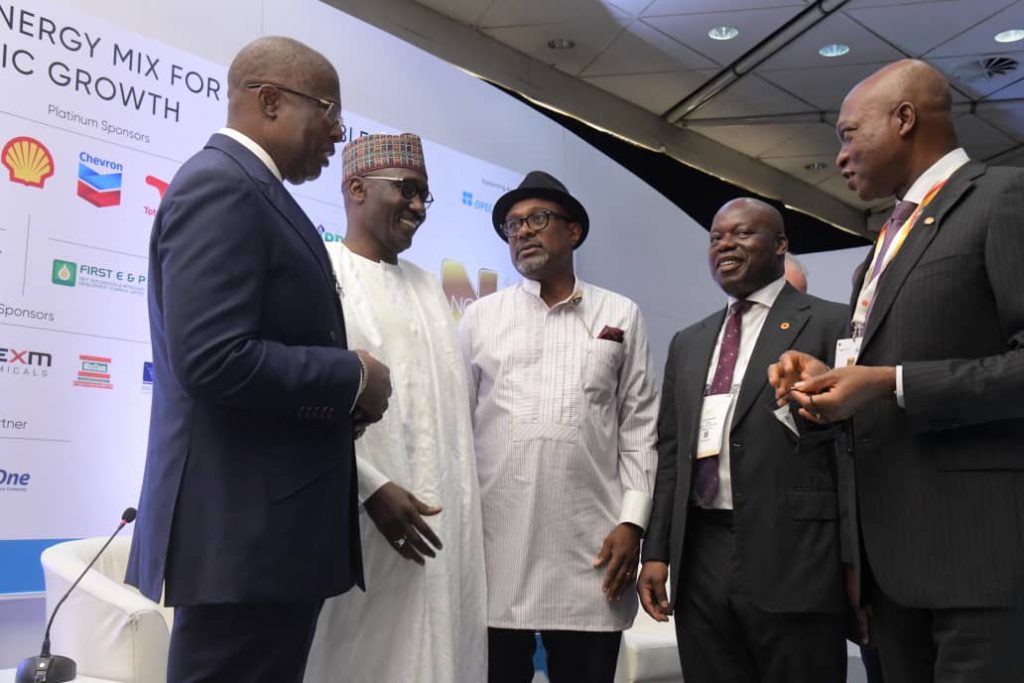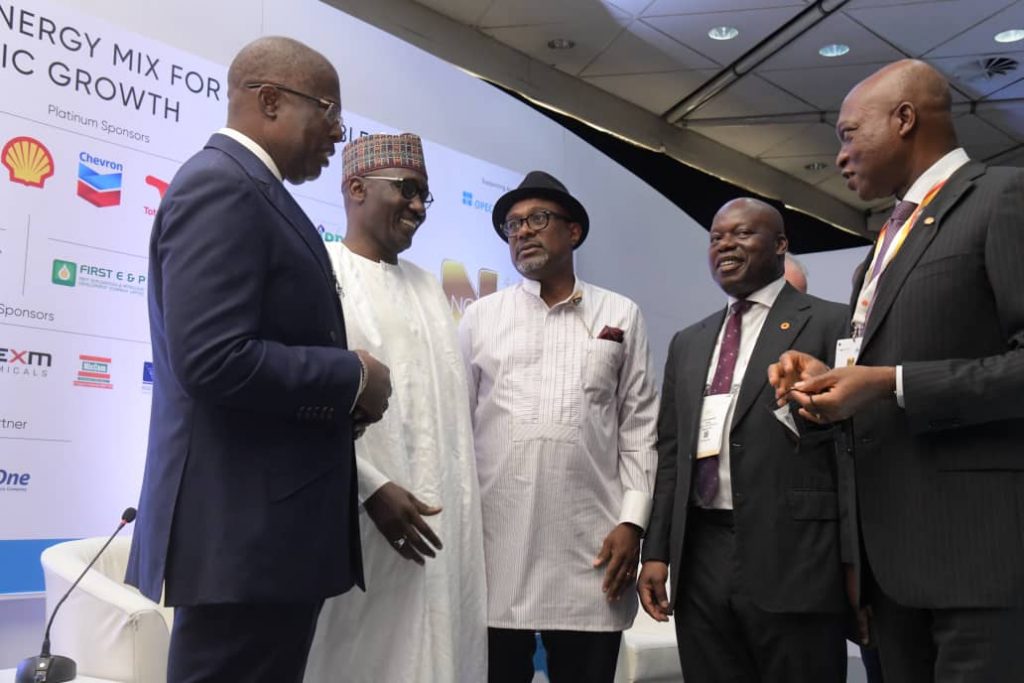News
NCDMB Unveils Ministerial Regulations, Charges Industry on Compliance
AJAGBE ADEYEMI TESLIM
Sponsored by: H&H
The Nigerian Content Development and Monitoring Board (NCDMB) has unveiled seven (7) ministerial regulations that will provide a proper framework for monitoring the implementation of the Nigerian Oil and Gas Industry Content Development (NOGICD) Act.
The regulations were approved by the Minister of State for Petroleum Resources, Mr. Timipre Sylva in April 2021 and were publicly unveiled at the Nigerian Content Seminar held at the recently concluded 2022 Nigerian Oil and Gas Conference in Abuja.
The Executive Secretary of the NCDMB, Engr. Simbi Kesiye Wabote explained that the regulations were made in line with section 40 of the NOGICD Act, which empowers the Minister to make them with a view to establishing the minimum standards in facilities, personnel, and technology for training in the oil and gas industry.
He noted that the Regulation on Training in the Nigerian Oil and Gas Industry provides for “the minimum standards, facilities, personnel, and technology for training in the oil and gas industry and modalities for involving operators and service providers as partners in training and development”, while the Regulation for the Further Growth of Indigenous Capacity sets out targets to ensure full utilization and steady growth of indigenous companies engaged in exploration, seismic data processing, reservoir studies and other facilities.
He added that the regulation for the Further Growth of Indigenous Capacity reinforces the principle of First Consideration for Nigerian-made goods and services and details compliance waiver management and the deployment of Capacity Development Initiatives (CDI’s) as a tool for the growth of indigenous capacity.
He also explained that the third Regulation which borders on the Registration of Oil and Gas Professionals with Nigerian Professional Bodies stipulates the requirements for any operator or company or professional employee, including expatriates, engaged for any professional service within the industry to register with relevant professional bodies.
Similarly, he explained that the Regulation for the Establishment of Operations in Nigeria 2021 requires an operator to set up facilities or other operations within Nigeria for the purposes of carrying out any services otherwise imported into Nigeria.
This particular regulation he said, “is meant to fully involve the operators in the eradication importation of goods by jointly developing CDI’s to close identified gaps and stipulates the procedure for securing tax and other fiscal incentives for compliant operators.”
The Executive Secretary further explained that the Regulation for Nigerian Oil and Gas Industry Technology Transfer promotes the development of technology in the Nigerian oil and gas industry through the transfer of technology to Nigeria and to establish guidelines, standard and methods for such technology transfer.
Furthermore, the Regulation for Nigerian Oil and Gas Research and Development provides the requirements and targets for the growth of Research and Development in the Nigerian oil and gas industry.
He stated that “the regulation stipulates the power of the Board to regulate research, supervise Research clusters and Centers of Excellence, Protection of intellectual property, partnership for Research and Development, Implementation of Research findings, and funding of Research and Development.”
Providing more details, Wabote explained that the Regulation for Nigerian Oil and Gas Industry Enforcement and Compliance provides for direct sanctions for breach, without the need to apply section 68 of the Act that would have required a criminal trial.
He stressed that “this regulation addresses failure to submit Nigerian Content Plan, failure to obtain Certificate of Authorization, failure to give First Consideration and comply with minimum Nigerian Content, expatriate quota violations, failure to submit mandatory information and documents, failure to make remittance to the Board on any contract awarded, failure to engage Nigerian legal practitioner firm, failure to retain the services of a Nigerian Financial Institution, Operators liability, the liability of Directors and officers of a company, liability of third parties, and several others.”
Speaking in a panel session on the implementation of the Enforcement and Compliance Regulation, the Head Legal Services Directorate NCDMB, Barr. Naboth Onyesoh explained that regulations are subsidiary legal instruments made by the executive arm of government or by its ministries, departments, and agencies (MDAs) to support the implementation of their enabling law.
He added that Nigerian Content regulations have direct nexus with sections of the NOGICD Act and are designed to support the Board in the implementation of key sections of the Act.
The NCDMB also used the Nigerian Content Seminar to present the Oil and Gas Insurance Guidelines developed in collaboration with the National Insurance Commission (NAICOM), to guide the insurance of assets and liabilities in the oil and gas industry.
Sections 49 and 50 of the NOGICD Act require players in the Nigerian oil and gas activities to engage local insurance companies for insuring their assets and liabilities.
Unveiling the guidelines in company with the Commissioner for Insurance, NAICOM, Mr. Sunday Thomas, the Executive Secretary stated that “the guidelines will contribute significantly towards promoting the development of insurance services in-country and driving the retention of financial spending in Nigeria thereby contributing towards reversing capital flight.
According to him, “the guideline will also help to create a database of all insurance programs procured by operators, project promoters, alliance partners, and Nigerian indigenous companies, to enable the Board to monitor utilization of in-country insurance capacity.”
He emphasized that “any in-country value retention realized from the insurance sector will further enhance the delivery of our 70 percent Nigerian Content target by the year 2027.”
He hinted that the goal of the regulations and guidelines are not to create additional impediments but to create job opportunities and in-country value retention to address threats to our socio-economic stability.
The 2022 NOG conference and exhibition started on Sunday with an invitational golf tournament sponsored by the NCDMB and held at the IBB Golf and Country Club, Abuja. The tournament featured golfers from the oil and gas sector and friends of the industry.
The tournament was the second edition sponsored by the Board and the Executive Secretary stated that the goal was to warm up all attendees to the conference.
He noted that the NOG “is a gathering of all oil and gas practitioners, operators and contractors and stakeholders, so we start the conference with a golf tournament to warm up everybody. The intent is also to bring alive the game of golf, to make it popular among oil and gas workers because they work hard. “We want to encourage them to play golf to keep fit.”


